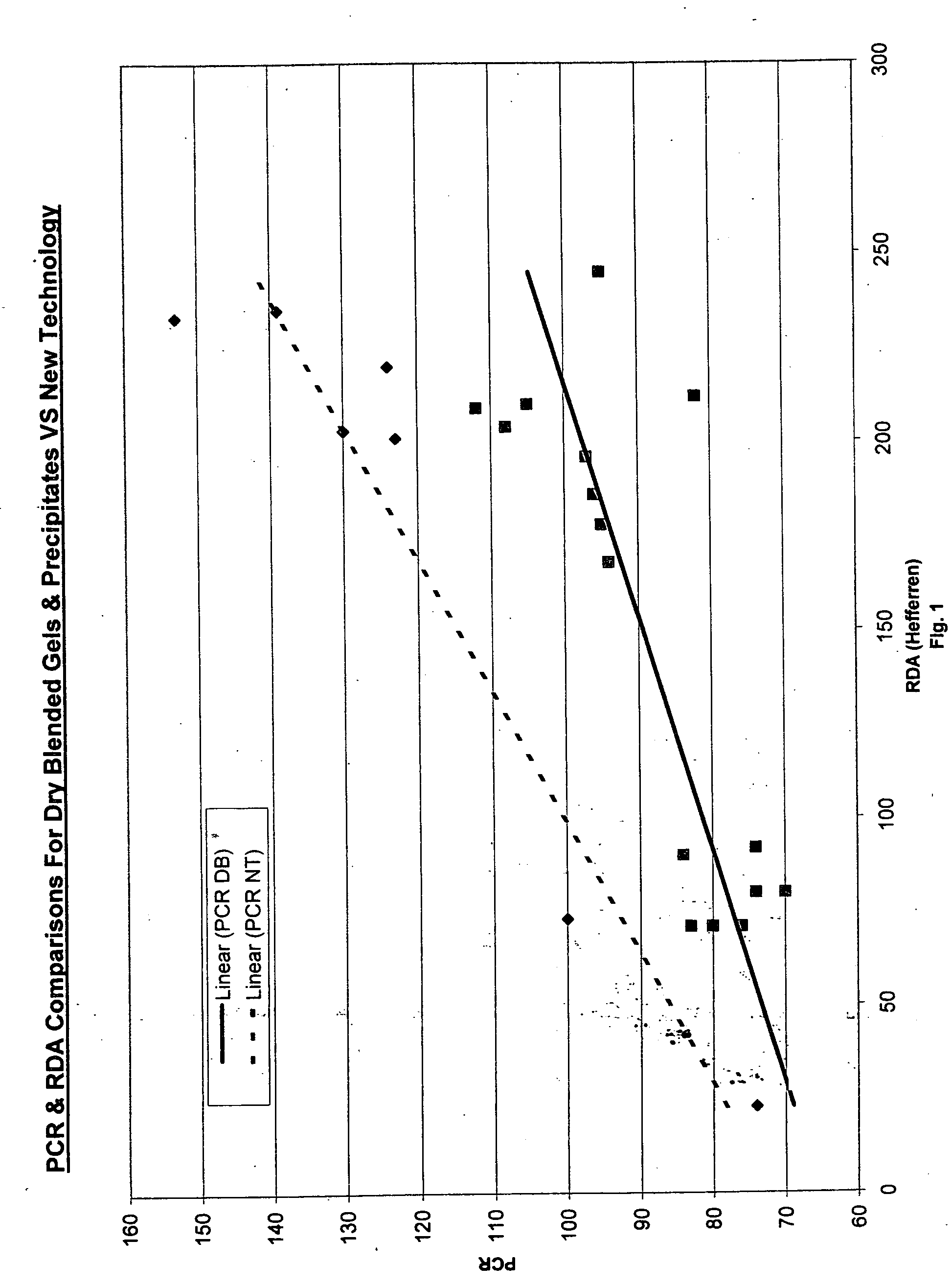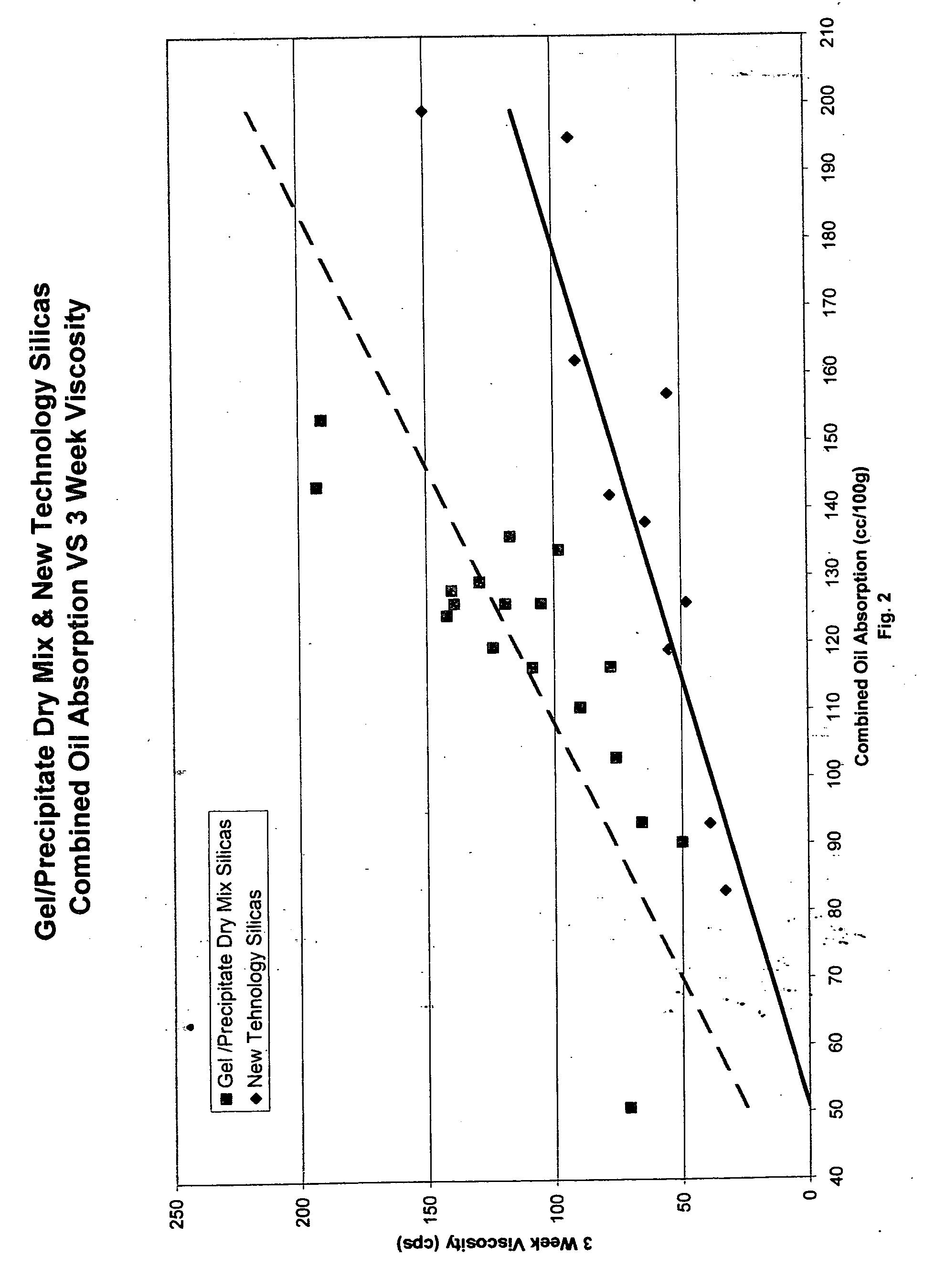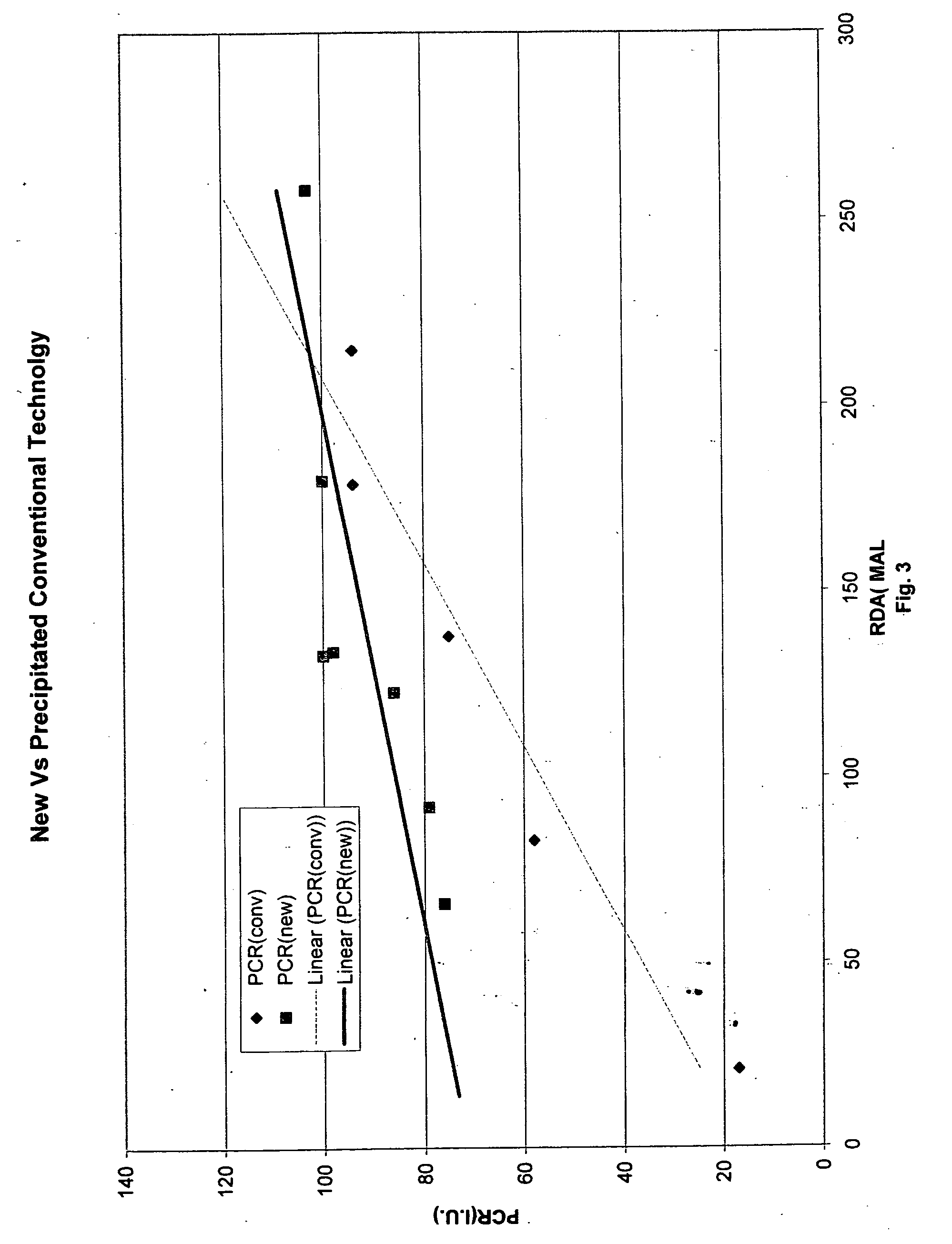High-cleaning/low abrasive silica and materials and dentifrice containing such materials
- Summary
- Abstract
- Description
- Claims
- Application Information
AI Technical Summary
Benefits of technology
Problems solved by technology
Method used
Image
Examples
example 1-2
[0087] The first two examples show the initial production of silica gel within the overall gel / precipitate production method. After initial production, some of these samples were then washed and purified in order to analyze the resultant material to determine if an actual gel is first formed as well as for other gel properties exhibited by such a sample. It is important to note that the remainder of the samples was utilized in the further production of gel / precipitate products below without any washing, purifying, etc.
[0088] In each example, a volume of aqueous solution of 3.3 mole ratio sodium silicate of specified concentration was charged within a 30 gallon reactor and agitated therein at 60 rpm. The reactor contents were then heated to 50° C. and then 11.4% sulfuric acid (heated to 30° C.) was added at a specified rate and for a specified time and the resultant product was then allowed to form into a gel-like material. This material was then filtered and subsequently washed wit...
examples 3-7
[0090] Examples 3-7 contained from about 10 to about 23% by volume gel and thus from about 90% to about 77% by volume precipitated silica (as noted in the accompanying tables). The products of these examples had silica structure levels varying from low structure (LS) to medium structure (MS) to high structure (HS).
[0091] A first step was followed in which a volume of aqueous solution of sodium silicate (Silicate Volume A) of specified concentration (Silicate Concentration A) and a SiO2:Na2O ratio of 3.3 was charged within a reactor and agitated therein (depending upon the size of the reactor, the agitation speed was from about 60 to about 92 rpm, although any speed may be utilized for such a procedure). The reactor contents were heated to 50° C. and then 11.4% sulfuric acid was added at a specified rate (Acid Rate A) for a specified time (Acid Addition Time A). (For Example 5, for instance, the agitator speed was set to 60 rpm, except it was increased briefly for 1 minute to 120 RP...
examples 8-12
[0093] Examples 8-12 contained about 25-35% by volume gel and about 75-65% by volume precipitated silica. The products of these examples had silica structure levels varying from very low structure to high structure. These examples were prepared according to the procedure given in Example 3-7, except with the parameters described in Table 5 below (note that Example 12 was produced within a very large reactor, about 40,000 liters in volume, with an agitation speed of about 92 rpm and a high shear recirculation flow rate of about 3050 liters / minute).
TABLE 5Reaction ParametersExample No.89101112Silicate Conc. A, %6136.032.513Silicate Volume A, l20020020060.36105Acid Addition Rate A, lpm4.74.74.74.7191.3Acid Addition Time A, min816814.111.75Water Volume, liters0001200Reaction pH Adjusted toNoNoNoNoNo5.0Silicate Conc. B, %16.211316.211313Silicate Rate B, lpm8.3312.88.3312.8521Acid Rate B, lpm4.5-4.74.74.7-2.04.7191.3Silicate Addition Time B,48314832.935.3minAverage Simultaneous4.348.027...
PUM
| Property | Measurement | Unit |
|---|---|---|
| Temperature | aaaaa | aaaaa |
| Fraction | aaaaa | aaaaa |
| Fraction | aaaaa | aaaaa |
Abstract
Description
Claims
Application Information
 Login to View More
Login to View More - R&D
- Intellectual Property
- Life Sciences
- Materials
- Tech Scout
- Unparalleled Data Quality
- Higher Quality Content
- 60% Fewer Hallucinations
Browse by: Latest US Patents, China's latest patents, Technical Efficacy Thesaurus, Application Domain, Technology Topic, Popular Technical Reports.
© 2025 PatSnap. All rights reserved.Legal|Privacy policy|Modern Slavery Act Transparency Statement|Sitemap|About US| Contact US: help@patsnap.com



